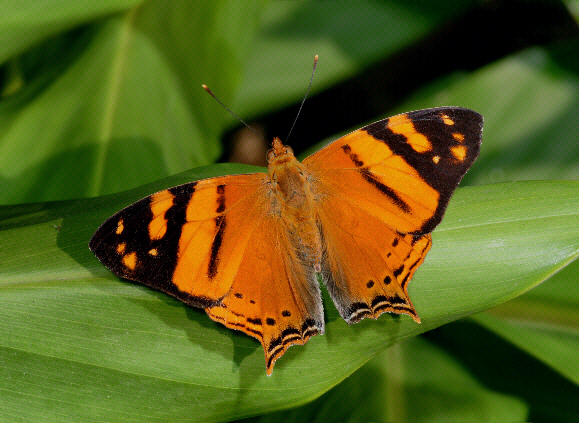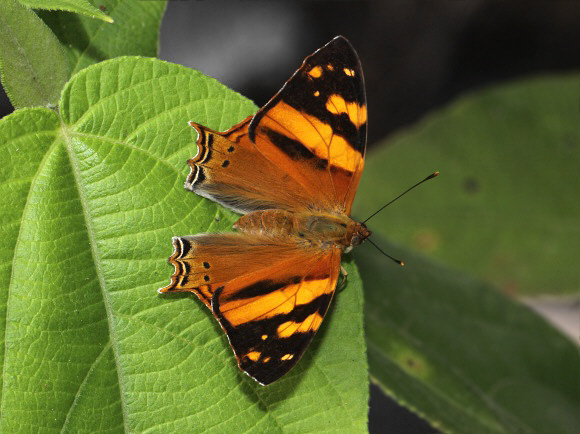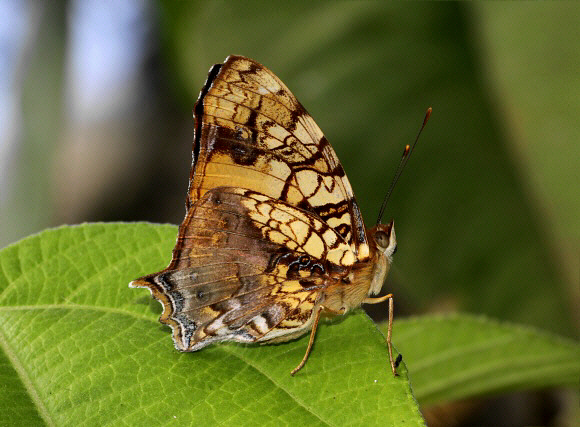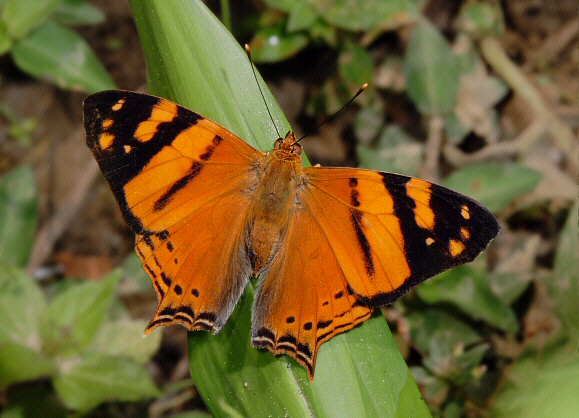
Introduction
The Nymphalinae includes many of the most well known and beautiful Palaearctic butterflies such as the Red Admiral Vanessa atalanta, Painted Lady Vanessa cardui, Camberwell Beauty Nymphalis antiopa, Comma Polygonia c-album, and Peacock Inachis io. Among the neotropical representatives are Colobura, Smyrna, Napeocles, Siproeta, Baeotus, Historis, Junonia, Anartia and Hypanartia.
The genus Hypanartia includes 14 species, all of which occur primarily in cloudforests of the Andes and the Cordilleras of Central America.
Hypanartia lethe is the commonest and most widespread species in the genus, found from Mexico to Bolivia.
Habitats
This species is found in association with disturbed forest habitats at altitudes between 300-1700m.

Lifecycle
The early stage morphology and ecology is very similar to that of Vanessa : The eggs are white, and laid singly on leaves of the foodplants which include Phenax and Boehmeria ( Urticaceae ) and Celtis ( Ulmaceae ). When small the larvae are black with short spines, and live within a rolled leaf tube, lined with silk. The mature larva is cream coloured with an orange head and black spines. It makes a tent by folding a leaf and binding it with silk, and retires inside the tent when not feeding. As is the case with Vanessa, the pupa is often formed within the larval tent.

Adult behaviour
It is unusual to see the butterflies basking with wings outspread – they are normally held erect when the butterfly is feeding or resting. Both sexes are normally encountered as singletons, flying back and forth along forest edge habitats, and settling periodically to rest on foliage. Males are seen more commonly, usually when imbibing moisture from damp soil, sand or decaying vegetation.

